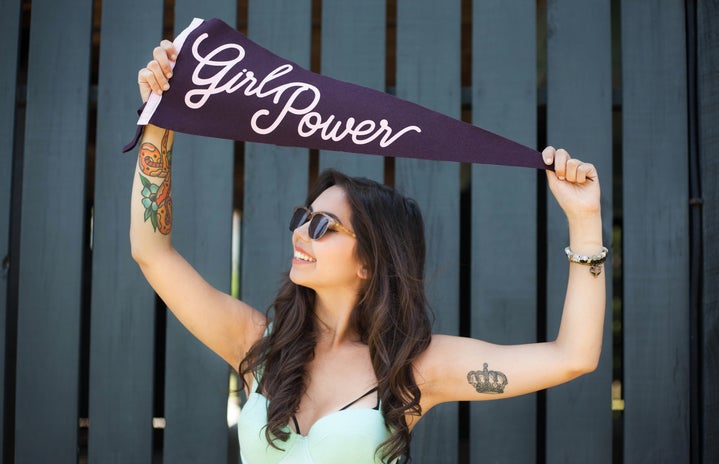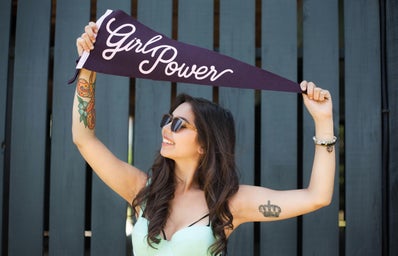“You throw like a girl.”
“Girls are too much drama, that’s why I only hang out with boys.”
“You’re not like other girls, you’re different.”
“Stop acting like such a girl. Man up.”
Growing up, I was always told that femininity was a weakness—a curse. According to my peers, there was nothing worse than being considered “girly.” The color pink, and other stereotypically feminine traits or interests, were to be avoided at all costs.
At a very young age, it became apparent that the only way to survive in this world as a girl was to denounce my girlhood as a whole.
“Girls are weak, girls are hormonal, girls are mean, girls are too much drama.” These narratives plagued my adolescence and left a lasting bitter taste in my mouth. “If this is what typical girls are like, then I don’t want to be one,” I remember thinking.
The world is quick to demonize girls and the things they enjoy—turning these things into a mockery, a joke. Stereotypes like “basic white girl,” “VSCO girl” or “e-girl” vilify girls for simply existing.
It wasn’t until I grew older that I started to realize that these “jokes” are just a form of thinly veiled sexism. They’re not funny, they’re not cute, and they’re definitely not harmless. More often than not, they target middle school to high school aged girls and have lasting effects on their confidence and self-esteem.
Hurtful comments like these pit women against each other and it’s time to retire these archaic narratives from our vocabulary.
It takes strength to be soft and kind in a world that is harsh and unforgiving, especially to women.
It takes strength to embrace girlhood and womanhood alike when most of the world thinks it’s okay to make you the punchline of a joke.
It takes strength to be a woman—to deal with sexual harassment and sexism on a daily basis.
Being feminine isn’t a weakness, it’s a strength.


